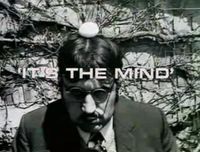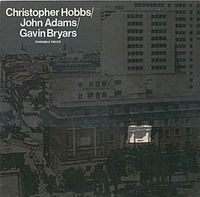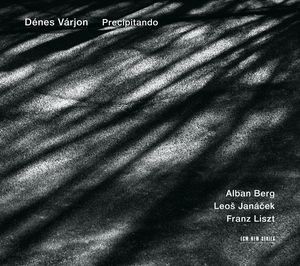Alex Ross's Blog, page 201
February 29, 2012
The appoggiatura imbroglio
 From time to time on this blog I've complained about journalistic stories trumpeting scientific researches into how music works and how it "makes us feel." These stories tend to draw simplistic conclusions from scholarly studies whose results are often quite a bit more nuanced and complex. Also, they tend to ignore centuries of prior speculation on the same issues. For example, back in 2004 I flagged a report claiming that "while many classical scores have a distinctly national feel, no one [emphasis added] had put forward a good explanation for why that should be." If you're reading about the emotional power of dissonant tones, you're not likely to see citations of Rameau's Treatise on Harmony, which went viral in 1722, and if you're reading about the interrelationship of music and language you will seldom encounter the name Leoš Janáček. I should make clear — as I haven't always made clear in the past — that the problem is very often not the work itself but the media summary of it. Although I do have serious questions about the methodology of that study finding that Beethoven avoided high notes in his middle period.
From time to time on this blog I've complained about journalistic stories trumpeting scientific researches into how music works and how it "makes us feel." These stories tend to draw simplistic conclusions from scholarly studies whose results are often quite a bit more nuanced and complex. Also, they tend to ignore centuries of prior speculation on the same issues. For example, back in 2004 I flagged a report claiming that "while many classical scores have a distinctly national feel, no one [emphasis added] had put forward a good explanation for why that should be." If you're reading about the emotional power of dissonant tones, you're not likely to see citations of Rameau's Treatise on Harmony, which went viral in 1722, and if you're reading about the interrelationship of music and language you will seldom encounter the name Leoš Janáček. I should make clear — as I haven't always made clear in the past — that the problem is very often not the work itself but the media summary of it. Although I do have serious questions about the methodology of that study finding that Beethoven avoided high notes in his middle period.
In a NewMusicBox piece, Isaac Schankler scrutinizes recent articles on the topic of music and emotion, these focused on alleged appoggiaturas in the songs of Adele. Because Schankler is a composer and musician associated with the field of music perception and cognition, in large measure his aim is to give a more accurate picture of the study by the psychologist John Sloboda that was mentioned in the Wall Street Journal and on NPR. But a more general protest emerges. Schankler resists "the implication that music is like a science of emotional manipulation through sound, and that it's as simple as applying a 'formula' to achieve commercial and artistic success." Exactly. So many of these how-does-music-work articles and books seem to view music as one thing, as a standardized mechanical apparatus whose tricks can be figured out. And music is peculiarly prey to trivializing and infantilizing questions. Perhaps I'm overlooking stories in other fields, but I don't seem to see headlines along the lines of "How do paintings make us feel?" or "Why do movies with unhappy endings make us cry?" or "What about thrillers makes us tense?" Music emerges from these reports as a reliable servant of everyday emotion, not as a medium of individual creativity. They dovetail a little too nicely with the corporate methodology of focus-group testing. Only the mean counts; outliers are discarded. I love the comment that Schankler found in a Metafilter discussion: "I'd like some scientific explanation of why that song does nothing for me."
February 28, 2012
Bel Canto (the opera)
The idea of an opera based on Ann Patchett's novel Bel Canto, a story of opera and terrorism intermingled, is hardly new; Aaron Jay Kernis was commissioned to write such a work for the Santa Fe Opera's 2006 season, and was unable to complete it. Renée Fleming, who resembles the opera-singer character in Patchett's book, continued to pursue the material, and in the 2015-16 season a Bel Canto opera will be presented at the Lyric Opera of Chicago, where Fleming is a creative consultant. The name of the composer may be refreshing for those who have grown tired of seeing the same names attached to such announcements. Jimmy López, a gifted Peruvian-born composer with Finnish training, will undertake the task, working alongside the Cuban-American playwright Nilo Cruz. Stephen Wadsworth is to direct, Andrew Davis to conduct; Danielle de Niese will portray the Flemingesque lead. Andrew Patner has more.
Zeal
 In the spring, as part of a WQXR residency, The Knights will perform John Adams's 1973 string-ensemble piece Christian Zeal and Activity, which calls for the incorporation of "sonic found objects," along the lines of Gavin Bryars's classic 1971 work Jesus' Blood Never Failed Me Yet. Most listeners are familiar with the version on the Nonesuch recording, which uses a sermon by a Southern evangelical preacher ("Now what's wrong with a withered hand?"). An earlier recording, issued on Brian Eno's Obscure Records label, employs a religious debate from a late-night radio show. (There, Christian Zeal appears as part of the three-movement piece American Standard — the earliest, and undoubtedly the strangest, item in the Adams discography.) For their rendition, The Knights are asking listeners to submit found objects for consideration — five to seven minutes in length, "using any equipment or techniques (analog or digital), edited and processed however you see fit." Entries are due on March 16, and will be reviewed by trumpter-composer Joshua Frank and a panel from The Knights and WQXR. I should note that circa 1988 my former WHRB colleague Michael Pahre, with whom I perpetrated an Ecstatic Radio Fantasia on Robert Ashley's "She Was a Visitor," prepared a version of Christian Zeal using the beloved voice of Milton Babbitt, talking about his studies with Roger Sessions. To this day, when those hymnal chords begin unfolding, I expect to hear, "But he had just returned from Europe when I went to study with him in 1935...."
In the spring, as part of a WQXR residency, The Knights will perform John Adams's 1973 string-ensemble piece Christian Zeal and Activity, which calls for the incorporation of "sonic found objects," along the lines of Gavin Bryars's classic 1971 work Jesus' Blood Never Failed Me Yet. Most listeners are familiar with the version on the Nonesuch recording, which uses a sermon by a Southern evangelical preacher ("Now what's wrong with a withered hand?"). An earlier recording, issued on Brian Eno's Obscure Records label, employs a religious debate from a late-night radio show. (There, Christian Zeal appears as part of the three-movement piece American Standard — the earliest, and undoubtedly the strangest, item in the Adams discography.) For their rendition, The Knights are asking listeners to submit found objects for consideration — five to seven minutes in length, "using any equipment or techniques (analog or digital), edited and processed however you see fit." Entries are due on March 16, and will be reviewed by trumpter-composer Joshua Frank and a panel from The Knights and WQXR. I should note that circa 1988 my former WHRB colleague Michael Pahre, with whom I perpetrated an Ecstatic Radio Fantasia on Robert Ashley's "She Was a Visitor," prepared a version of Christian Zeal using the beloved voice of Milton Babbitt, talking about his studies with Roger Sessions. To this day, when those hymnal chords begin unfolding, I expect to hear, "But he had just returned from Europe when I went to study with him in 1935...."
From Ecstatic Radio Fantasia, June 2, 1989.
February 25, 2012
Best Unoriginal Score
In a pair of posts on the New Yorker website, Sasha Frere-Jones and I attempt to make sense of the nominations for Best Original Score in this year's Oscars. In particular, we address the disqualifying of Cliff Martinez's music for Drive. We both want to know: if Martinez did not qualify, why was a nomination given to The Artist, whose climactic scene is driven by Bernard Herrmann's celebrated score for Vertigo? It seems to us that the rules are being applied in a blatantly inconsistent manner.
February 24, 2012
Colbert does opera
A cute moment: Plácido Domingo and Stephen Colbert sing "La donna è mobile." The comedic pundit has something of an operatic past, having been associated in his youth with the Spoleto festivals, both in Charleston and in Italy. If I am not mistaken, I believe he is the "Steven Colbert" who is here reported playing several bit roles in Samuel Barber's Antony and Cleopatra in 1983, not to mention a "nude brothel customer" in Madama Butterfly. Tell us more, Maestro!
Back to the future
The Metropolitan Opera's 2012-13 season contains only two operas composed after the death of Puccini: Poulenc's Dialogues of the Carmelites and Thomas Adès's The Tempest. The two works receive a total of eleven performances. Still, I'm happy to see Adès's powerful work making its way to New York; I covered the premiere in 2004.
February 23, 2012
Miscellany: Rouse, Clyne, Polignac, etc.
The New York Philharmonic has announced its 2012-13 season; Christopher Rouse will be composer in residence.... Fiona Maddocks likes the choice of Sakari Oramo to lead the BBC Symphony.... On the occasion of The Death of Klinghoffer at English National Opera, the usual controversies have flared up. Tom Service ponders being called a "complacent Gentile" by Richard Taruskin.... Andrew Patner interviews the restlessly inventive Anna Clyne on WFMT, on the occasion of the Chicago premiere and West Coast tour of her Schubert-inspired piece Night Ferry; the composer has a debut CD, Blue Moth, from Tzadik.... The New York edition of the UNSOUND festival has started a Kickstarter campaign, raising funds for its Unsound Labs initiative.... In a program in Philadelphia on March 10, the Black Pearl Chamber Orchestra gives a rare outing to music of Joseph Boulogne, Chevalier de Saint-George.... In customary fashion, Other Minds in San Francisco avoids predictable choices for its annual festival, March 1-3: the composers are Harold Budd, Gloria Coates, John Kennedy, Ikue Mori, Tyshawn Sorey, Simon Steen-Andersen, Øyvind Torvund, Ken Ueno, and Lotta Wennäkoski.... Good stuff seems in the offing at the Brooklyn Heights new-music series Music at First.... Stephen Drury plays Cage's In a Landscape and selections from his Etudes Astrales at ISSUE Project Room on Feb. 24. The S.E.M. Ensemble occupies the same venue on March 1, and the following night ISSUE pays homage to Cage with a series of new pieces around four and a half minutes long.... Tomorrow night the Chamber Music Society of Lincoln Center celebrates the famous salon of Winnaretta Singer, Princesse de Polignac, with works of Stravinsky, Falla, Fauré, Debussy, Françaix, and Dowland. Sylvia Kahan, the Princess's superb biographer, speaks beforehand.... What to do next Monday? Red Light New Music presents a Feldman-centric program, the Met revives the awesomeness that is Khovanshchina, Gerald Finley sings at Tully, the Luigi Nono electronic fest continues, the NYU Symphony plays David Byrne's The Forest alongside student pieces by Tim Hansen and Ian Ng, and Juilliard presents its annual student-composer orchestra concert, with works of Michael Lee, Stefan Cwik, Michael Ippolito, and Jared Miller.
Owens rising
Allan Kozinn has a fairly rave review of Eric Owens's recital at Zankel Hall on Tuesday night. I agree in most particulars — this was a formidable outing from a singer who has become one of the most riveting artists on the operatic scene. What I like most about Owens is that he is incautious, testing the capabilities of his voice rather than following a safe route. (He explained his philosophy in an excellent interview with Steve Smith in the Times.) His choice to sing an all-French second half was the adventure here, and it wasn't entirely persuasive; the Debussy and Ravel songs were lacking in lighter-than-air lyricism, and the diction wasn't as crisp as in the German first half. (I had a hard time forgetting Gerald Finley's gossamer Ravel at Zankel in 2010.) Yet Owens's intellectual engagement with the music was clear, and he certainly had the right voice for Duparc's somewhat heavier "L'Invitation au voyage" and "La vague et la cloche," not to mention Wagner's early "Les deux grenadiers." And the German songs — Wolf's Michelangelo Gedichte, four Schumann Lieder, and Schubert's "Prometheus," "Fahrt zum Hades," and "Gruppe aus dem Tartarus" — were tremendous: fully inhabited, at times operatically potent, rich in subtlety. Wolf's "Alles endet, was entstehet" was flat-out extraordinary, giving an oblique preview of the Wotan that Owens is likely to sing in a few years' time. For the reprise of the opening phrase ("Everything ends which comes to be"), he adopted a shiveringly hushed, whispery timbre, as if staring into the abyss; I could hear him singing "Das Ende!" in Act II of Die Walküre. Then, no less movingly, he gave a rounded tone to the very last phrase, "rings vergehet," evoking a yet deeper realm. There were similarly striking touches in the Schubert set: the imperious octave descent of "Ewigkeit!" in "Gruppe aus dem Tartarus," also very Wotanlike, will be ringing in my ears for a while.
Owens, who comes across as an immensely likable guy, bantered with the audience in the second half, expressing surprise that we hadn't left the hall. Setting up his second encore, Copland's arrangement of "Shall We Gather at the River," he joked, "This is my answer to the Schumann set." That such a buoyant personality can take us into such dark regions of the human spirit suggests that Owens is essentially capable of anything.
February 21, 2012
Before Bocelli
Once upon a time, American public television aired musical programs of substance. The video above is from Music in the 1920s, a twelve-part series presented by Aaron Copland in 1965. (Via Seated Ovation.)
CD of the Week: Dénes Várjon
The opening of the Liszt Sonata in B Minor, from Dénes Várjon's CD Precipitando, which also has the Berg Sonata and Janáček's In the Mists (ECM 2247).
Várjon performs with András Schiff at Carnegie on Saturday.
Alex Ross's Blog
- Alex Ross's profile
- 425 followers





